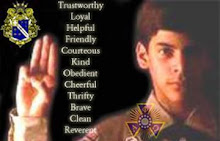
I tried to scan some tips from magazines and the internet but there are only a few and scanty ones. I mean, nothing really was specific and tailored fit for her as far as I am concerned. Nevertheless, there are some few that I can put together to work on and add my thoughts to it.
One says, it helps to prepare a family work schedule in terms of balancing the attention for the child within the work schedule. I think I've been doing this already and I'm doing it quite well as in - I don't have to jot them down. They just come in naturally as it has been the normal routine in my life, hence.
Another source said, that traditionally, first graders learn how to read, but they also acquire other skills during this exciting year. They seem to be chatterboxes who talk non-stop and that contributes to their reading skills as much as any other activity they willl indulge in.
This is absolutely correct. Princess is such a chatterbox that I feel I just have to be a good listener to complete our communication. Then, I don't have to say her routines every now and then. I think she is smarter than what is to be expected of her age. Thank God that I did not experience to be jittery in raising her.
Below are some trackers that will guide any child getting ready to enter the first grade:
1. On developing langguage skills:
Your child will
• Be surrounded with materials to read, including books, poems, shared chart stories.
• Spend time in small groups reading interesting books with lots of pictures to enhance the story. • Write original stories. These will start out being very simple, with only one or two sentences at first.
• Look for familiar words that appear in everyday objects, from signs on the streets to the library books they brought home.
• Read and write poetry to find similar word patterns such as bat, pat, sat and hat.
2. On developing Math skills:
Your child will
• Use the manipulatives to begin to develop concepts of addition and subtraction.
• Substitute numerals for the manipulatives and write the problems on paper.
• Develop an awareness of time and money by using instructional clocks and lifelike play money in games.
3. On developing social skills:
Your child will
• Play group games, showing an increasing ability to take and wait for his turn.
• Respect other children's property and space.
• Recognize different emotions in others and respond to them in appropriate way. For example, a story about a lost puppy would make children feel and look sad.
• Be able to plan ahead; for example, they may decide to save a snack for later.
4. What else you may do to help:
• Continue to read to your child each night even after he or she has begun to read.
• Encourage him or her to find words that are familiar and read the word when he or she is stuck. • Place value on new writing skills and ignore misspelled words for now.
• Play simple board games that reinforce counting skills.
Finally, and I think, the most important thing: follow-up your child's performance in school. This is the best tracker that you will have to do to check on the child's educational development. It pays to talk to the teacher who, I'm sure, is very much willing to share with you about your child's performance in school and what else needs to be done. As they say, there is always room for improvement.







No comments:
Post a Comment